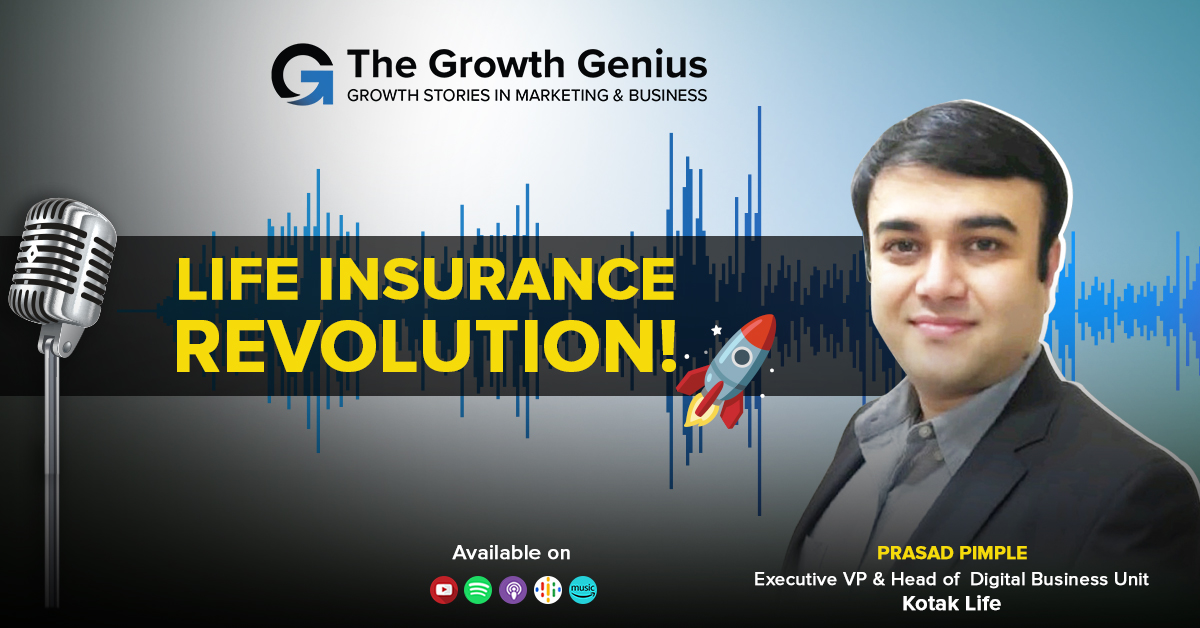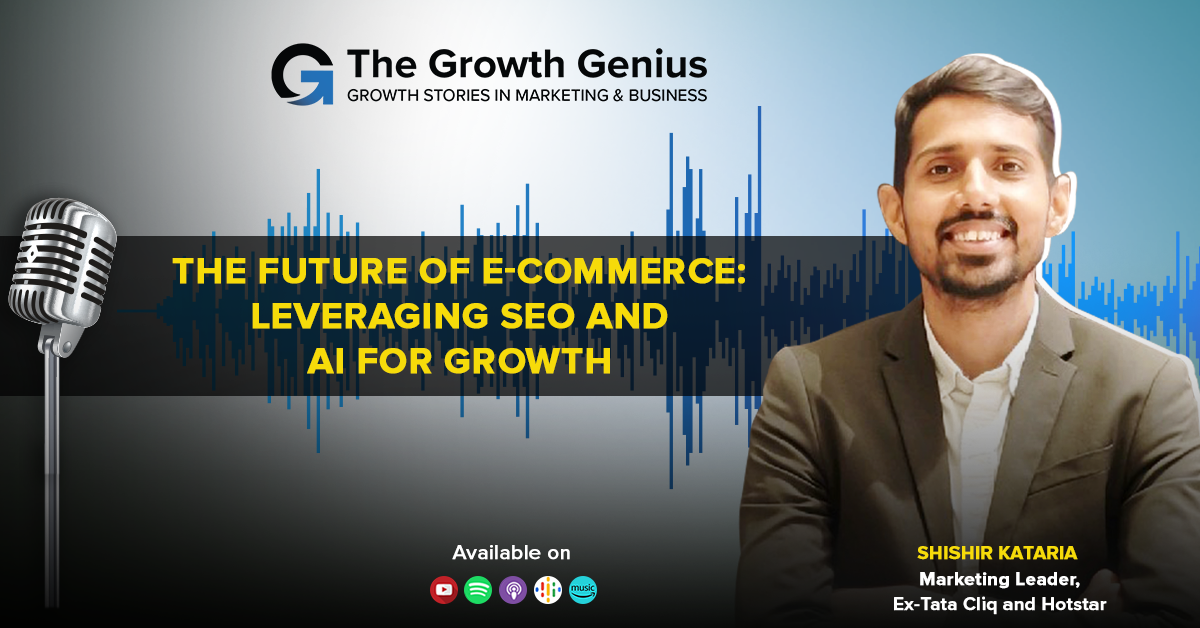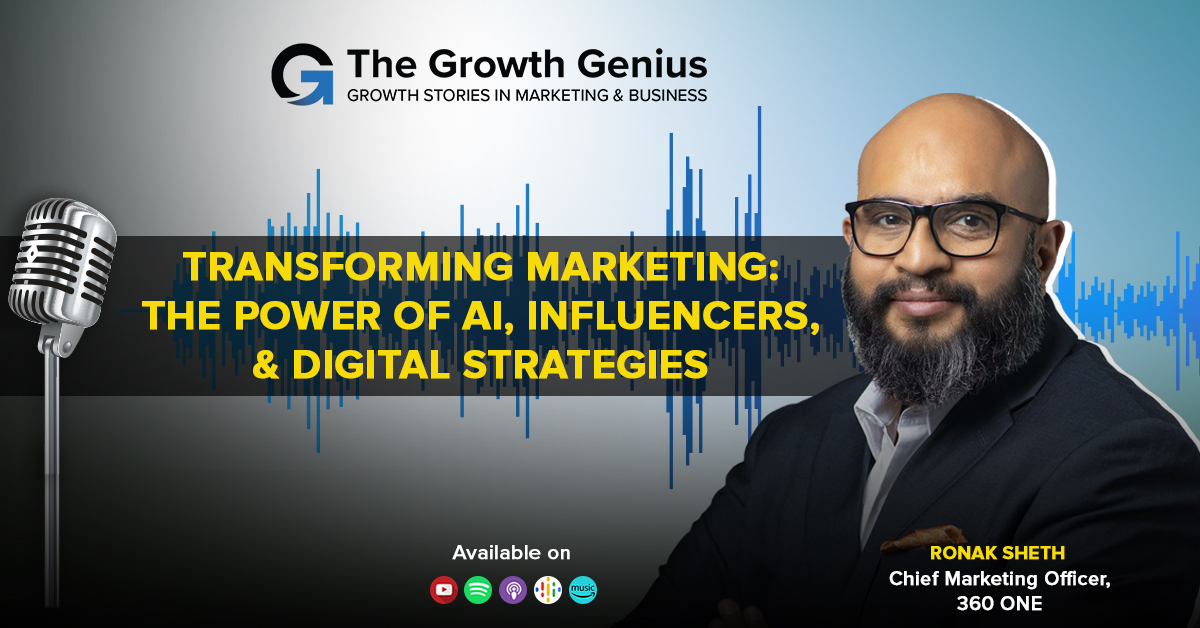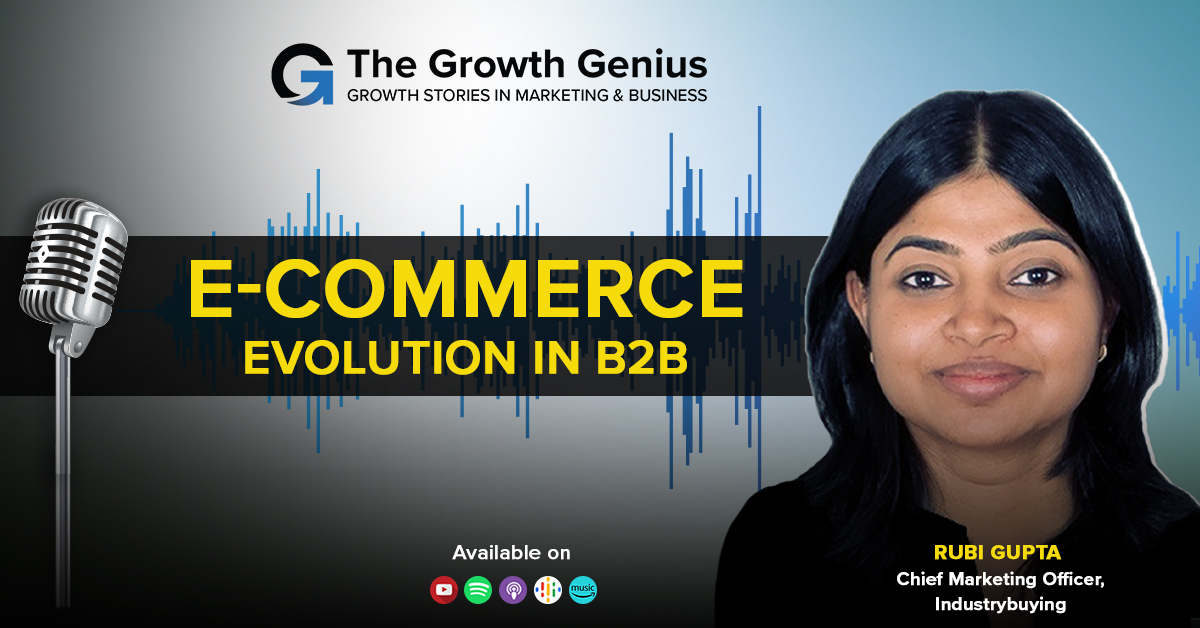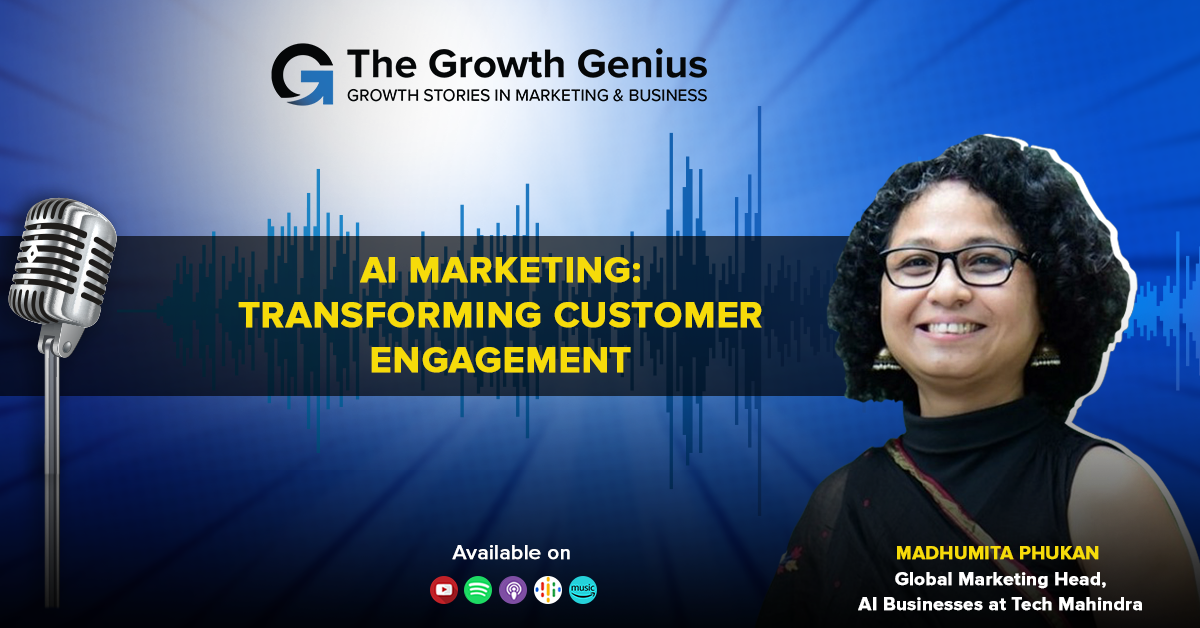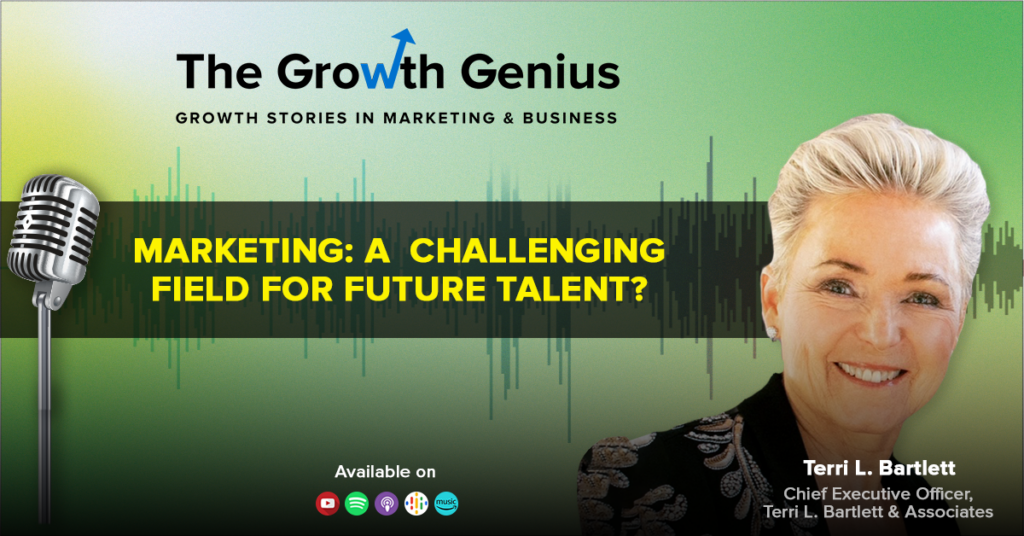
Witness an Increase in your ROI
Unlock higher rankings, quality traffic, and amplified conversions through tailored award-winning SEO strategies.
|
Getting your Trinity Audio player ready...
|
Listen on your Podcast app
Summary
In this podcast episode, Terri Bartlett shares valuable insights on how to identify talent for marketing. She emphasizes the importance of finding individuals who possess a combination of creativity, analytical skills, and a passion for learning. Bartlett suggests looking for candidates who have a natural curiosity and are willing to take risks. She also highlights the significance of hiring people who can adapt to changing trends and technologies in the marketing industry. Bartlett advises organizations to assess candidates’ problem-solving abilities and their ability to work well in a team. By focusing on these key qualities, businesses can find the right talent for marketing roles and drive growth in their organizations.
Key Take Aways
8 Key Takeaways for Digital Marketers from Terri Bartlett’s Blog:
- Importance of Analytical Skills: Digital marketers should possess strong analytical skills to interpret data and make informed decisions for marketing strategies.
- Understanding Consumer Behavior: Marketers need to have a deep understanding of consumer behavior to create targeted and effective marketing campaigns.
- Adaptability to Technological Changes: Being open to learning and adapting to new technologies is crucial for digital marketers to stay ahead in the ever-evolving digital landscape.
- Embracing Creativity: Creativity plays a vital role in digital marketing, as it helps in crafting unique and engaging content that resonates with the target audience.
- Continuous Learning: Digital marketers should have a thirst for knowledge and continuously update their skills to keep up with the latest trends and best practices in the industry.
- Collaboration and Communication: Effective collaboration and communication skills are essential for digital marketers to work seamlessly with cross-functional teams and stakeholders.
- Data-Driven Decision Making: Marketers should rely on data-driven insights to make informed decisions and optimize marketing strategies for better results.
- Strong Project Management Skills: Digital marketers need to possess strong project management skills to effectively plan, execute, and monitor marketing campaigns within deadlines and budgets.
Read Transcript
Terri Bartlett:- The individual and the culture of the organization has got to be curious and then, I mean a healthy curiosity. I am such an advocate for marketing as a career because I think, one, you will never get bored. It just never is the same. Identifying great talent is not easy, you may have a great candidate but they may not fit the culture of your organization or the particular style. So there are a lot of dynamics that go into selecting a successful landscape.
Shelly Singh:- Hello and welcome to The Growth Genius Series brought to you by DMAasia and Infidigit. My name is Shelly and I’m the country director – Americas at Infidigit. I’m also the founder and director at DMAasia. In this Growth Genius series the world’s best marketers and business leaders are interviewed about the brands they have worked on, their successful campaign strategies, how they got noticed by their customers and how they delivered better customer experiences to drive growth.
Today we have Terri Bartlett, CEO of Terri L. Bartlett and Associates. Supporting people to realize their potential has been central to Terri Bartlett’s life for decades. Terri was the CEO and president of Marketing EDGE, formerly the Direct Marketing Educational Foundation, the non-profit arm of the Direct Marketing Association, USA. Under her leadership, it became recognized as the only non-profit organization serving future generations of marketing talent with a proven track record. Prior to joining Marketing EDGE, Terri was the founder and executive director of the Toy Industry Foundation. She also represented major brands and associations while working for public relations agencies including Robert Marston and Associates and Roland Worldwide, a very warm welcome, Terri.
Terri:- Thank you so much, Shelly, it’s great to be here.
Shelly:-Great. So tell us about your career path, how did you develop your passion to work in non-profit Industries?
Terri:- Well it’s an evolution. Marketing and advertising have been in my career path since I graduated from college. I really centred on advertising in school and that evolved into public relations and as you said I’ve had numerous positions at PR agencies and then was serving as the VP of communication at the Toy Industry Association. In that particular role I started taking on the philanthropic activities of the toy industry and that really opened the door for me to have an opportunity to found the Toy Industry Foundation. From that, because it was connected to an association, a non-profit connected to an association is a very specific kind of non-profit organization, I got a call from a recruiter from what was then the Direct Marketing Educational Foundation about the position and it mirrored so much of what I did from a role, from a leadership position but obviously the topic, the approach and the scale of it was larger than what I was doing. So how that transition happened is that I really wanted to use the skills that I had professionally in a way that would enable me to make a difference and that’s what non-profit service has enabled me to do through my career.
Shelly:- That’s great. So a brand’s most important accent is talent, however too many organizations go from initiative to implementation without thinking about the talent required. Please tell us how talent plays a critical role to drive growth for any organization.
Terri:- I think it’s the kind of the stealth issue that is underlying so many different organizations, both successful and unsuccessful, the ones that know how to really tap into that nurture it and really develop it are the ones that are I think thriving. They understand how critical that is. It’s also a hard nut to crack. Identifying great talent is not easy, you may have a great candidate but they may not fit the culture of your organization or the particular style. So there are a lot of dynamics that go into selecting that successful landscape.
Well, at Marketing EDGE we did a lot of work in really working with organizations to start early by enriching a talent pool through internships, community speaking, education, opportunities that really cater to the really young talent pipeline and those who are really thinking about it with a short and long-term viewpoint start that early with internships, young professional development and mentorship.
Shelly:- Yeah. So today modern marketing activities are consumer oriented, so therefore marketing organization comes into the picture. So, what is a marketing organization and how can you build a sound marketing organization?
Terri:- Well, I wish I could really put that succinctly. It’s interesting, I was at a luncheon today through the Marketing Club of New York and there was an annual presentation that Bruce Beagle of the Winterberry Group gives every year and the thing that’s so fascinating to me, what I think is so thrilling about the marketing industry and what is challenging and really confounding is how marketing evolves. He was talking about, he started doing these presentations back in 2006 and he said the kind of unknown at that time was about mobile and social. So, look at how those two platforms are so integrated into the marketing mix today. I think because those changes defining marketing and a marketing organization today, is something that has to evolve companies that are eager, curious, education focused, talent focused, all of that has to be an integral part of what marketing organizations are today and particularly going forward.
Shelly:- So another question which I think is very important is that consumer marketing also has changed more in the past 10 years than it did in the previous 30. So, in this scenario how do you create an agile marketing organization?
Terri:- It’s very similar to what you look for in great talent and I think the number one quality is curiosity, the individual and the culture of the organization has got to be curious and then, I mean a healthy curious, I was thinking about this and it’s like you can’t go on a tangent with every single thing that you’re curious about, the thing that really identifies a superstar marketing talent is curiosity, knowledge and an innate Instinct about what that mix will be and then to follow it to the end degree both in what has been established as well as innovation, finding out ways that that can be innovated to really meet the demands not only at the marketplace today but of tomorrow. And like you’re talking about, look at how much it’s changed even during COVID, look at the dramatic changes that have come about in the last two to three years mainly because of the circumstances that we were on at a global level, not just one country or whatever, it was really globally. And again, going back to Bruce’s presentation, two of the things that he said that are trends that he’s seeing for the coming year are around connected TV, how that’s even evolving with many obstacles still to come, but it almost sounds like the same discussion that we had with mobile and social back in 2006, but now we’re talking about CTV as well as retail. I mean think about how retail and e-commerce has entered the marketing mix in a way that we didn’t even have that discussion 10 years ago, maybe not even really, you know I guess five years ago we did but not at the level and really the noise level that we’re seeing after the influence of COVID. So, I think the marketing of today defines that you have to keep evolving because consumers are changing how they’re getting to the products, then you’ve got the influx of younger buyers, younger consumers and look at how bold and innovative young people are. And one thing about that, that’s where I think talent can have such a big influence in what’s going on is how companies when they bring in fresh talent, meaning young eager hungry talent they’re getting new ideas, they’re getting practices from digital natives like things that I know from my generation and even the generation below me have never really experienced because we’re not digital natives. Now that doesn’t mean that they necessarily know how to run a company, so there’s really great cross learning and opportunities for the companies that really harness that relationship.
So really, I am such an advocate for marketing as a career because I think one you will never get bored, it just never is the same and the learning, the experience, the opportunities continue to evolve in such a rapid pace that you have to stay engaged and really involved and so much of this takes place on the front lines of marketing. So, I think it’s such an exciting opportunity and it can be daunting. I mean look at what companies go through to try to stay up with what the trends are and you will know that and many of your members will know that much better than I do. I know it more from looking in and looking to see how we could really serve the industry from a next-gen talent perspective, not necessarily from knowing exactly how to do marketing. So, I can speak to it from one perspective and your other speakers will talk about it from a much more front line marketing perspective.
Shelly:- Yeah. So, there’s a major misunderstanding among young people about what marketing actually is and how to establish a successful career path in the field, so what do you think about this?
Terri:- I think that’s absolutely true. I do think it’s getting better but I’ll share with you what we would not always hear but often hear is in the Marketing EDGE programs we sometimes we would ask students what made you select marketing as your education focus and several people would say it’s the only thing that I could choose that didn’t have math. And we were like, well, you should go change your major today because that is as far away from reality as you can get and it’s moving much more in that direction. Now there are ways of – students and I think actually even more seasoned marketers that aren’t particularly, and again this has evolved very quickly, so I think it’s changed very much over the last few years, but I think there are a lot of people who have been lifelong marketers and don’t really understand the critical connection between data, analytics, math per se and how that enhances creative. You know it’s not a separate entity, there’s an integration of all of that that really leads to dynamic, measurable, successful marketing, but they all have to come together. And I think really both sides can learn from each other. I mean I think one of the challenges of the direct marketing field and, you know, I said this to people when I was in Marketing EDGE and talking to marketers that really direct marketing in my view has a very negative image among people who are not in the industry. I’m not talking about people who are real advocates, I’m talking about outside of the industry and those that think it’s just spam or the annoying calls or whatever, that I think that direct marketing in that way can learn from brand marketers because the brand direct marketing is so misunderstood. So, I think that there’s incredible opportunities on both sides. I think if people would not be so committed to making their side right and would see what the collaboration could be, I think it could be very powerful.
Just one anecdote for you, I was talking to a neighbour of mine who had – he’s retired now had a career in marketing and one night we went out to dinner and he goes, “Explain to me what is,” and I said, “It is measurable accountable marketing that when you use that particular approach to marketing you know what is working and you know what’s not and you can adapt your campaign so that you have more of what’s working and do away with what’s not.” Now this is a man whose career was in marketing, you know, this was a long time ago but he said he had never heard direct marketing explained like that, how can that happen.
Shelly:- So when somebody asks me what’s direct marketing I tell them every marketing is direct marketing.
Terri:- Well and , you know, that’s really the reason when we changed the name from the Direct Marketing Educational Foundation to Marketing EDGE. From the moment I got to DMEF, the short name for it, people kept saying all marketing is direct. I said, well, if all marketing is direct then let’s just go with marketing, why do we need a descriptor which will be, you know, out of date by the time we get all the branding done. We’ll just go with marketing and claim the whole thing. So that’s why we zeroed in on Marketing EDGE which EDGE was to educate, develop, grow and employ. So, we didn’t need a direct or digital or interactive, we just went with marketing and that definitely as you know well, that’s definitely how the marketplace is shifting.
Shelly:- Very good point. So how can brands, academia and various marketing associations play a role to elevate the profession of marketing?
Terri:- I think collaboration, there are people who, again going back to that curiosity and that openness, I mean with curiosity you get openness and a discussion and adventure and all of that, I think by having people who are so inundated in branding but open to discussing other types of marketing, by having those two types of individuals on a platform and sharing in an exploratory way about what they might learn from each other, what they might bring to the table to serve each other I think it’s that kind of a collaboration that starts to change the dynamic between, I’m sure you’ve heard it, above the line and below the line, and all that does is create antagonism I think. So, by doing away with that and talking about how, you know, we all work together to achieve success, that’s what can be incredibly powerful.
Shelly:- Yeah very interesting.
Terri:- Easier said than done, but I think that’s just like every other issue. Communication, education and relationship is really at the core of all of that, that’s all.
Shelly:- Yeah, great. So, what are the latest trends when it comes to hybrid and remote work for marketing professionals?
Terri:- Well, again going back to Bruce’s presentation I was so glad it happened earlier today because there’s verification, first of all it’s all up in the air, there’s no right way, there’s no wrong way. Companies are going like Iger at Disney is requiring everyone back five days a week and I think Elon Musk is too. Some of the tech companies are going virtual, , you know, you can work virtual if you want and then others in between, two days, three days. The best description and discussion I’ve heard is that it really depends on the role and it depends on the organization, how much collaboration is required, how much kind of synchronicity is required and spontaneity of engagement among staff members is required in whether it’s a role or a particular organization, all of that is so dependent on what a company needs to do to excel at whatever it is that they do.
The one thing that I do want to note and this is what scares me about some of the young people, I know that a lot of the young people want to work remotely, that’s how they were introduced to the marketplace and they love having that kind of freedom. What they don’t know is what they’re missing and I think that there are so many things in career development, professional development, growth opportunities that happen in a one-on-one kind of a situation. Now it doesn’t have to be five days a week, but I think at least some kind of face-to-face is so critical. And the other thing that I think, and this may just be a general statement, but I think a lot of young people need to know how to operate from a social perspective or a professionally social perspective to develop themselves into leadership and more senior management capabilities. And by working remotely they’re in a bit of their own bubble and I fear that they are not getting the kind of development that they need. I can understand the desire to work from home, but for that particular killer young group I think that they’re missing out on a lot that, again, they don’t even know that they’re missing out on it. Although I love working from home, I’m an advocate for the hybrid format because I actually think it contributes to everyone. My two cents that, you know, five dollars might get you a cup of coffee.
Shelly:- You are so right because my son, he got a job and he has a hybrid model and he’s not here, he’s living in Ontario and I spoke to him, but how would you like it this model right and he said that when I go to office it’s very important to go, he goes three days to the office and two days he worked from home and so three days when he goes, it’s a different experience, he gets to meet with his colleagues and, you know, meet with his bosses and there’s so much interaction happening and then when he’s at home, that’s also another experience because he has so much flexibility. He can focus on his food and his diet and, you know, his exercise and whatnot, so it’s just fun and he’s very happy with this model. So, this is why I’m seeing that more people are enjoying the hybrid model, of course, a lot.
Terri:- I don’t hear that that much, you know, here or reading it, I don’t hear that being promoted or supported as much, so I’m glad to hear it first hand because I do think it’s really critical and , you know, because my focus has been on young people for so long, I think I just worry about how they’re being taken care of and how they’re being nurtured for the future of their career and the future of themselves.
Shelly:- Yeah, great. So another question, how to retain and develop the talent not only for the marketing teams but also the leadership roles, what are your recommendations?
Terri:- Well, culture obviously is going to be critical and when I was talking, one of the things that we’ve already talked about having an office where curiosity and exploration and relationship, taking time to interact with each other and be with each other I think is really critical, one thing that I knew at Marketing EDGE, first of all the senior leadership team that we had at Marketing EDGE was incredibly tight. We worked really hand-in-glove with each other and one of the things that we did I think really well is each one of us had a very specific role. We respected each other for that particular role and relied on each other for that particular role and we’re very clear about how they each were integrating into the overall success of the organization. So I think that respect and being accountable, you know, each of us were accountable for our particular roles and responsibilities and we held each other accountable for what it was and that doesn’t mean that, you know, we always hit everything a hundred percent, but because we were so closely in connection with each other and communicating about what was going on, there was a lot of open dialogue, a lot of exchanges, a lot of support and that connection between the senior team was also watched very closely by members of the team. And I think by seeing that that was the dynamic that we had it actually made them want to be a part of the team.
The other thing that was valuable is that and I’ll sing praises for one of my colleagues Marie Adolf who was in charge of all of the programs, Marie is so good with talent, she’s always teaching them how to be better at their job and the one thing that I always knew is, of course, I had an open door for our team, if they wanted to talk to me they could, but they couldn’t come to me about issues in their particular area. It was up to them to talk to their direct report, not to talk to me and I think really supporting those lines of communication and reporting kept everything really clean and I think that creates trust and so retention, trust and always growing, I mean we were always – we had a small team, we were always demanding more, sometimes that was not so good, but if we went over the limit then there was discussion and we would back off and take some things off the table, but again that kind of interaction, that kind of trust and respect for each other is what created a culture that enabled us to have team members that stayed with us. I mean Marie and I worked together for 15 years and that was the top leadership part of it and other team members, I don’t know of anyone that was there, usually several years at the very least and some of them were like seven to ten years each. So creating that kind of culture is what creates retention and growth. We were always pushing people to grow because I think people want to develop themselves and they want that variety and they want to be able to look back and say okay I started here, I’m now here and also there’s always going to be a life after that, you know, the current position, how can the current position create and support someone for the future of their career.
So that doesn’t necessarily give you a real clean definition about retention but I think there are so many different elements that organizations have to do and some of it is all about the various introductions of those various characteristics and aspects that strengthen retention. And the other thing is sometimes you just have to let people go, sometimes it’s actually either time for them to go because they’re going to get more out of a new position and sometimes it just doesn’t work and you have to let people go when that dynamic is there as well. No one ever likes that but that’s just the reality.
Shelly:- Yeah, very good points. So, as we are wrapping up the session, my last question I want to ask you is, tell us about any of your passions you follow and how it helps you to elevate your profession.
Terri:- So I think probably the single thing that I’m most passionate about is integrity and that can be personal, that can be professional and I absolutely committed to that and always looking to see challenging myself because, you know, we all have blind spots, we all can learn and continue to evolve and I think that that journey of being true to oneself based on the integrity and I’ll talk about myself, being true to myself based on the Integrity of who I am at the core and who I am as I evolve as an individual because who I was 10 years ago is not who I necessarily am today. My core values are central to who I am but there are elements of how I manifest my life that continues to change and that is something that I think is – you could see that play out with Marketing EDGE because and very similar in the marketing industry, if you think that who the marketing industry is 10 years ago and that’s who it is today, you’re going to get left behind. And it’s the same thing from a personal standpoint that we have to stay in touch and really evolve based on who we are as individuals. So I think it’s a strange answer to your question, but it is something that I’m deeply committed to and I do a number of different things, I meditate , you know, I do various programs and readings to really understand myself and really challenge myself about who I am and how I manifest in my life and it’s endlessly fascinating.
Shelly:- Thank you so much for sharing, great. So how can our viewers connect with you?
Terri:- Probably the best way is through LinkedIn, on LinkedIn and even though you see Therry Bartlett up here I’m listed my profile is under Terri L Bartlett, so that’s the easiest way, in doing that and sending a connection request or something it’s great to reference this exchange so I know where it’s coming from. I’ve gotten a little bit more discerning about requests for connections, but I love connecting to people, I love seeing what everyone’s doing and of course seeing what they’re posting and what they’re about as well, so I welcome the connections.
Shelly:- Great, thank you so much, Terri, for your time today. Great insights on the imperatives that we invest in the people who drive businesses, the brands and our industry because talent is a key driver of growth. Thank you so much.
Terri:- Oh thank you, Shelly, thank you for inviting me.
Shelly:- To all our viewers thanks for listening and please subscribe to this channel. If you enjoyed this episode and you would like to help and support this podcast, please share it with your friends, post about it on social media or leave a rating and review. I’ll see you next time in a new episode with a new speaker, then peace.


